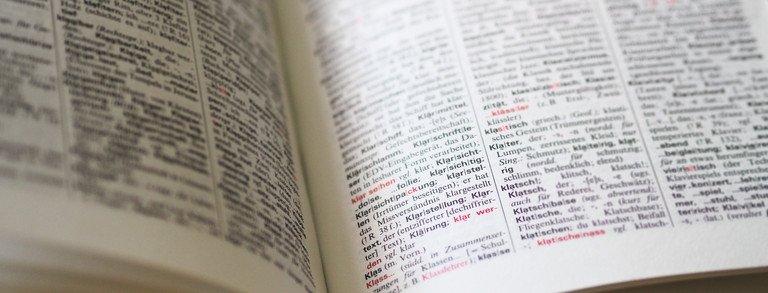LSBTTIAQ[+] (Abbrev.) | engl. LGBTTIAQ[+]
LSBTTIAQ[+] (Abbrev.) | engl. LGBTTIAQ[+]
In German, this abbreviation stands for the self-designation Lesbisch, Schwul, Bisexuell, Transsexuell, Transgender, Intergeschlechtlich, Asexuell and Queer. In English, it stands for Lesbian, Gay, Bisexual, Transsexual, Transgender, Intersex, Asexual, and Queer/Questioning. The shorter form LSBT, or in English LGBT, is also frequently used. The abbreviation can also be used as an adjective chain if the individual letters are lowercase, e.g., as in "lsbttiaq persons."
The trailing letters in the chain have historically been added later. Until the 1990s, the generic term "gay" was used to refer to a variety of sexual and gender identities in the United States. Lesbian, bisexual, and trans activists did not see this as adequately representing all of them, and by the 2000s created the acronym "GLBT," which also named lesbians, bisexuals, and transgender people. With the advent of other gender and sexual self-designations and the desire for representation, more letters were and are being added. Sometimes a plus is added to the string of letters to denote sexuality and gender as an unenclosed spectrum. The term LGBTTIAQ can be understood as an embodiment of decades of change and dialogue; it tells a story about modern LGBTTIQ human rights movements.1
People often refer to an LGBTIAQ "community," even though it is a highly diverse group of people. Even people who belong to the individual letters do not form a homogeneous group or community. The abbreviation LGBTIAQ is also criticized, especially from an inter- and transactivist perspective, for speaking in an appropriative way on behalf of inter- and transgender people but disregarding their specific concerns.
May 17: International Day Against Homophobia, Biophobia, Intersex and Transphobia (IDAHOBIT)
People under the acronym LGBTI+ experience discrimination and violence in different ways, both in Germany and globally. The International Day against Homophobia, Bisexuality, Inter- and Transphobia (IDAHOBIT) on May 17 draws attention to this and calls for solidarity. In many places, public actions take place annually on this day.
The date commemorates May 17, 1990, when the World Health Organization (WHO) decided to remove homosexuality from its diagnostic code for diseases. And it was until 2022 that transgenderness is no longer listed as a "gender identity disorder".
Quellen
-
Borussia Dortmund. Facebook-Post, 17. Mai 2019. Facebook. Letzter Aufruf 30.04.2020.
-
Das Queer Lexikon. „Wofür steht LGBTI?“. Der Tagesspiegel, 03.02.2017. Letzter Aufruf 23.04.2020.
-
Deutsche Aidshilfe. „ICD-11: WHO wertet Trans* nicht mehr als ‚mental oder verhaltensgestört‘“. Autor*innenkürzel ascho/hs, 19. Juni 2018. Letzter Aufruf 30.04.2020.
-
Friedek, Patricia. „Dortmund zeigt Flagge gegen Homophobie – die besten Posts zum IDAHOBIT“. Ruhr Nachrichten, 17.05.2019. Letzter Aufruf 30.04.2020.
-
Iovannone, Jeffry J. „A Brief History of the LGBTQ Initialism – How did the LGBTQ community come to be known as such?“. Medium. com, 09. Juni 2018. Letzter Aufruf 14.05.2020.
-
Netzwerk LSBTTIQ Baden Württemberg. „LSBTTIQ?“. Letzter Aufruf 23.04.2020.
Das Glossar soll sich im gegenseitigen Austausch mit Leser*innen weiterentwickeln.
Wir stellen regelmäßig unter dem #klargestellt die Definition eines Begriffs zur Diskussion. Sie haben Fragen oder Anregungen? Diskutieren Sie mit und tragen Sie zu einem besseren Verständnis der Begriffe bei! Wir freuen uns über Ihre Rückmeldungen an: shk.gleichstellung@verwaltung.tu-dortmund.de





